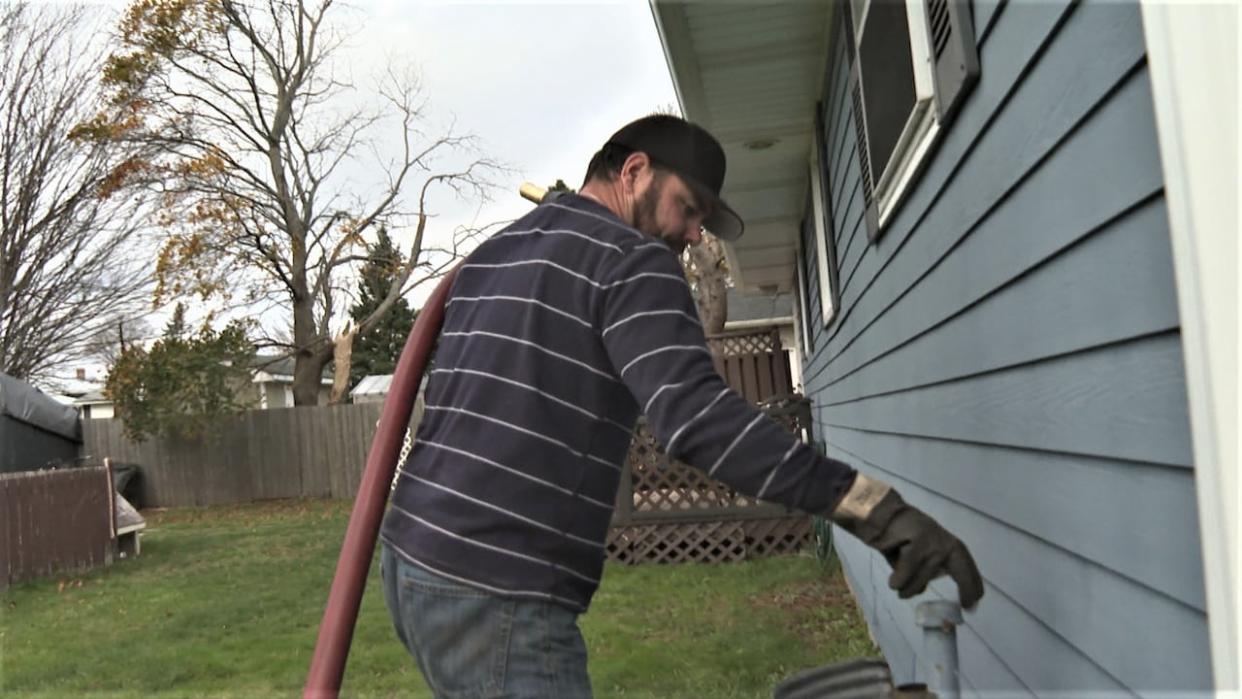Latest carbon tax offset payments landing in bank accounts Monday

- Oops!Something went wrong.Please try again later.
Maritimers can expect the same amount of money they've been getting from Ottawa in the latest carbon tax rebates being deposited Monday. But their next payment may be smaller because home heating oil is exempt from the levy.
Prime Minister Justin Trudeau announced a three-year pause on the tax for home heating fuel near the start of the heating season to try to cushion the blow of the tax, particularly on Atlantic Canadians. Despite the fact thousands of households will have saved some money as a result, this latest quarterly rebate remains unchanged.
"The actual changes in the price of the rebates are going to take effect on April 1, 2024. So that is a calculation that's being done with Finance.... There will be some type of re-calibration over the next couple of years but the payment schedule has been established. It's been public and it will be remaining so until the new fiscal year," Kings-Hants MP Kody Blois told CBC News in an interview Friday.
A family of four will still receive:
$248 if they live in Nova Scotia.
$240 if they live in Prince Edward Island.
$184 if they live in New Brunswick.
Those who live in small towns or rural communities get 10 per cent more to reflect the fact they use their vehicles more, because they generally don't have access to mass transit or live farther away from grocery stores and other necessary services.
Home heating oil costly
Blois said people heating with home oil will receive more money.
"The Atlantic caucus and a number of Nova Scotia MPs were successful in making adjustments to the policy and that is twofold. One is increasing the rural rebate, so for Nova Scotians outside of Halifax this is making sure that come April they will have a higher amount versus those in urban settings, which we saw as really important from an equity consideration."
The other adjustment was for home heating oil, Blois said. He said there are about a million homes in Canada that use home heating oil and 286,000 of those are in Atlantic Canada.
"The majority of people that are still using home heating oil, even though it is two to four times more expensive, the reason they're still using it is they don't have the means to be able to make that switch," Blois said.
New Brunswick payments level out
"So we've paused that price signal for people using home heating oil and introduced an expanded program in partnership with the province to help those individuals make a transition. We understood that was going to take time."
New Brunswick residents may wonder why this payment is half what they got last October. That's because the province was brought under the federal carbon tax regime later than the other Maritime provinces.
As a result, Ottawa sent New Brunswickers a double payment in October to cover off the period from July to December 2023.
The federal Minister of Finance is expected to announce new payment amounts before the next quarter which may be smaller to reflect the fact the tax has been removed from heating oil.
"We have to remember the actual price per tonne [of carbon] is increasing, so Nova Scotians probably aren't going to see any decrease in terms of the payment they actually receive," Blois said.
Benefits lower, middle incomes, says official
Although the Trudeau government has repeatedly said most Canadians would receive more in rebates than they paid in carbon tax, last spring, the House of Commons Parliamentary Budget Officer cast that claim into doubt. According to Yves Giroux's analysis, in Nova Scotia for example, only those at the lowest end of the income scale would see more in rebates from Ottawa than they would have paid out.
Still, Giroux said, eight in 10 Canadians will get more than they pay in tax.
"When you consider both direct and the indirect costs of carbon pricing, a majority of lower and middle income families are receiving more money back," he said.
MORE TOP STORIES

